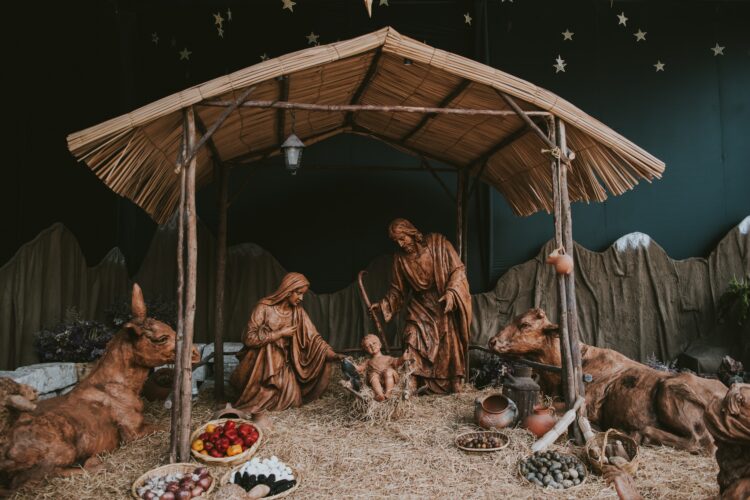Probably almost 2 billion Christians, whether nominal or really committed, celebrate Christmas as the birthday of Yeshua. They celebrate the meaning of the incarnation. We will soon be treated with internet writings, Youtube teachings, and Facebook posts telling us how awful it is that Christians celebrate Dec. 25 as the birth of Yeshua (and have in the Catholic Church a communion service, mass, celebrating his birth or Christ’s Mass). We will be told that this is pagan, a blot on the faith, syncretism. The attack against Christmas does not come from any of the mainstream Messianic Jewish organizations, not the Union of Messianic Jewish Congregations in America, the Messianic Jewish Alliance of America, Tikkun America, or the Messianic Jewish congregations in Israel, Ukraine, Russia, and South America. Where does it come from? It comes from gentiles who are embracing their interpretation of a return to Jewish roots. Many Messianic Jewish congregations do not make a big deal out of Christmas in their corporate celebrations. They allow members to celebrate according to their conscience, but because they are Jewish oriented and think that Yeshua was not actually born on Dec. 25th, they have not made it part of their religious year of celebrations.
Those on the attack claim that Dec. 25 was chosen due to pagan associations with the Sun, Mithraicism and more. I do think it is the wrong date. Besides, Jews celebrated miraculous events and not birthdays. Jewish people in the first century may have seen the conception by the Holy Spirit as the great miracle. I agree with the non-Catholic scholarship consensus of His birth in the Fall, maybe at Sukkot (Tabernacles). But as I have argued, the meaning of a practice is according to the definition of those who embrace it. That is the sum of it. The Church is not celebrating the gods or something pagan. Most of us as Messianic Jews are glad that the World celebrates the birth of the greatest Jew in history.
So here are a few points in response. First, Dr. John Fischer, one of the fathers of the Messianic Jewish Movement and the President of the Union of Messianic Jewish Congregations today, argues that Yeshua was really born on Dec. 25th. He has not convinced me, but his argument is credible. You can write and get his video on this from St. Petersburg Theological Seminary in Florida. That he would argue this should give us pause. Secondly, we have to distinguish between Protestant Church traditions and celebrations and the secular culture. I for one am hard-pressed to know any historic Protestant traditions that are pagan and not worthy of admiration. Can you list any? The tradition of the hymns for the season are wonderful, touching and biblical. Church tradition reenacts the events leading up to his birth and then the birth in the four weeks of Advent. All of the biblical passages on his birth and incarnation are read. Sermons are prepared on these themes. Choirs visit shut-ins and bring them cheer by singing the Christmas hymns. Without Christmas, it would be a much darker world. The only pagan thing that is noted is the date (this is in question) and the Christmas tree, which is interpreted by Christians as life coming into the world and the tree as a reminder that He would die on a tree. The Jeremiah 10 text on the tree, often quoted by these folks, has nothing to do with this. It is about a tree being cut and chiseled into an image of a god. Besides, the Christmas tree is a recent thing and not part of the historic Protestant Church tradition.
But there are troubling aspects in the larger culture. The secular celebrations and office parties to reach back to the winter pagan orgiastic gatherings. They rebel against the Christian tradition, and this is a more recent development. The materialism and buying sprees are certainly not part of the spirit of the Church tradition. Giving to the poor is. Mistletoe is also a faint reminder of pagan practices. Santa Clause is at best neutral but again not part of Church tradition. I am all for Christians making their traditions more truly biblical in accord with church tradition.
Messianic Jews and their scholars are fighting serious issues. They include replacement theology, the election of Israel, the special calling of Messianic Jews, the right understanding of law and grace, the prophetic understanding of Israel’s restoration in our ancient Land and more. However, fighting the Church and its traditions of Christmas is not one of these battles. It is more like tilting at windmills Don Quixote style. It really hinders us in our work of building John 17:21 unity with believers. It is a foolish battle. Rather, let’s visit churches during this season and bring them more of the Jewish context of the coming of Yeshua, especially the Jewish aspects of Luke 1, 2, and Matthew 1, 2. I am thankful that this is not the orientation of the mainstream of the Messianic Jewish Movement in the world. Those who pursue this look cultic, narrow and sectarian.
